Photographs: Hitesh Harisinghani/Rediff.com Harish Kotian
When he batted out in the middle, it was a nightmare for bowlers to get past his defences. Most of India's Test victories abroad in the last 15 years saw Rahul Dravid play the central role, which was also instrumental in the team's rise to the No. 1 ranking in the longer version of the game.
The cricket legend, who was also known as 'The Wall', retired earlier this year after a magnificent career. Not only was he a great cricketer of his era, but also came across as one of the finest speakers on the game. Talk to him about cricket and he can go on and on, for hours and hours, just like he did out in the middle with the willow in his hand.
- Exclusive! Bowling will determine our Test future: Dravid
And, deservedly so, countless articles featuring his every facet of batting, have been written over the years. On Tuesday ESPN Cricinfo released Timeless Steel, a 256-page book featuring a collection of articles on the former India captain.
During the function, Dravid spoke on a range of issues: from why he gave up India captaincy, his relationship with Greg Chappell, and why he worries for the future of India's Test cricket.
On what forced him to give up India's captaincy in September 2007:
I thought it was a great honour and privilege to captain my country. I dreamt, as a kid growing up, of wanting to play and that's what all I wanted to do. To actually captain your country was a huge privilege and honour.
In some ways, I had a taste of what it was like, because for four-and-a-half years before that I was the vice-captain under Sourav [Ganguly] and captained in a few games as well. When I got the job I took it on with an enthusiasm and energy that in some ways I felt was needed at that stage and I wanted to do it.
I know in the end I gave it up because of that very reason. I took it up with a certain amount of enthusiasm and energy and passion and desire to do it. And that stage when I gave it up I felt somehow over that period that had gone. Maybe it was just the amount of cricket we played in that period, some of the up and down results we had. To be fair we had some good results as well and we had some crushing disappointments as well. All that, maybe, had a toll on me; so, at that stage, when I gave it up, I was not enjoying it and I tried to tell this to people.
I was getting up in the morning in some of the ODI games and thinking, 'Oh God, here is another game of cricket'. I had never felt like that before for a game of cricket.
It is a tough job; it is a challenging job, no doubt about it. There is a lot of stuff that happens outside the field that you need to be able to deal with quite well. In hindsight, there are a lot of things that I look back and think, maybe, I could have done it better.
I would like to believe that I did a pretty good job of it. Maybe, I could have done a better job. Maybe, if I had paced it out better; maybe, if some results could have been better. Some times when certain results don't go your way, like the World Cup, it takes a toll on you emotionally. If some of those results could have gone better, maybe, my frame of mind would have better and I would have been able to carry on longer.
'I don't really know what is lined up in the future'
Photographs: Hitesh Harisinghani/Rediff.com
His plans for the future:
I don't really know what is lined up in the future. It is a great game and it has been part of my life. I would in some way like to be involved in some form or the other. What that form takes, and how and when it happens, you never know.
I have to be humble about it as well. A lot of people who I respect and who I feel have been able to really make some good contributions to the game from the outside have taken some time away from the game. I have been caught up in this for the last 25 years, if you talk about the under-15 cricket I played for Karnataka.
I have lived this game, I have played this game; I have been around people associated with the game. I think sometimes it is not a bad idea if you step away from it all, go outside and look at things from a different perspective.
It is a great game and there is no way I can give back, because it is too great a game to give back. I would love to be associated with it someway and what form it takes I don't know.
'Greg Chappell was a fantastic person to talk cricket'
Photographs: Hitesh Harisinghani/Rediff.com
His relation with the controversial Greg Chappell, who was India's coach during his tenure as captain.
I thought he was a fantastic person to talk cricket. Right from the first time I met him in Australia I thought he was a terrific man to talk batting with; he really knew the game. People like Greg are people who are grown up with the game, they talk the game, they discuss the game and he is a kind of personality who has grown up in an era of Australian cricket where will they play the game they sit back at the end of the day, spend hours at the bar discussing the game. There was a lot there that he could offer in terms of knowledge, the experiences of having played the game so much. He was a great batsman himself, so he knew batting, understood batting. There was a lot he could offer, there was a lot he could help young kids with it.
Did Greg Chappell call the shots when it came to picking the team?
It was always my team; there was no doubt it. Because Greg was a strong personality, because he was himself a great cricketer and because of the fanfare and publicity that came with whatever he did, at times it would always overshadow the impression it was his team more than my team or our team or the Indian team. I think that is the nature of the person; he is kind of that person who can polarize opinions at times. He is a strong personality, he comes across like that. But I always felt like it was my team; I was very happy with things and the way they went.
I never felt, even any time privately, that he tried to say that no this is the way we should do things or that is the way we must do things. He had an opinion, and, like most Australians, he voiced it and he was strong about it.
'Lot of my learning early on happened in train journeys'
Photographs: Getty Images
How the culture in the team has changed over the years:
In a way, it is a sign of professionalism, because people are so busy cooling down, stretching, going to the physio; so time for social interaction or meeting people and getting together happens less and less. I think the distractions are there a lot in today's time -- there is so much external entertainment. There is so much more to do that people no longer want to hang around the dressing room, the dirty or smelly dressing room, and that is one of the sad parts of the game.
I remember growing up, the long train journeys for playing first class. When you were on the long train journey, like from Bangalore to Kolkata, in the evening you could hear GR Viswanath or Syed Kirmani talking about the game or Carlton Saldanha or Roger Binny. You had their undivided attention and you kept pestering them by asking questions. It was a great time and a lot of my learning early on happened in these train journeys. I fully enjoyed them.
'The greatest satisfaction is from playing Test cricket'
Photographs: Getty Images
Are cash-rich tournaments like IPL spoiling today's youngsters?
It is hard for me to be judgmental of kids of today. When I grew up, if I wanted to be a successful professional cricketer and making a living out of the sport became a part of that. I had completed a commerce degree in college, and not very successfully, so I knew I had to make this . What I like to tell young kids is that the greatest satisfaction is from actually playing Test cricket, and by playing in some of the greatest stadiums across the world. That will give you the greatest personal satisfaction; so don't sell yourself short. Try and achieve it, because it is possible and can be done.
There might be kids in this era who might take this soft option. You will be able to see in time who will and who doesn't. In every era there are people who are fallen by the wayside.
The players like Rohit Sharma, Suresh Raina and Manoj Tiwary have grown up watching Test cricket. It is small kids like my sons age who have grown up watching Twenty20 cricket; so that will be a challenge, because it will be interesting to know what they will want in ten years' time. I don't see it as an immediate problem for the future, but I see that as a long-term issue over the course of the next ten years. When those kids become big what their dreams and aspirations will be remains to be seen. Will they want to play for a franchise? I think those challenge will arise in ten years time and you need to address it right now.
'I would regret them if I didn't try my best'
Photographs: Getty Images
Any regrets in his career?
I don't think I regret anything. There are some things that didn't go the way I would have liked them to go. In the 16 years you have played I have had some ups and downs, some incredibly highs and some crushing lows. There are many things that could have gone differently in my career, but do I regret them? No.
I would regret them if I didn't try my best. I always tried my best, I always tried to become a better cricketer and every time I went out I tried to play the best innings when I went out on the field. I don't think I was casual in either my preparation or the knowledge that I had.
'Dhoni is a great leader by example'
Photographs: Getty Images
Best captain he played under:
It is a tough one, because all of them had their strengths and each of them meant something to me. The two whom I played under the longest were Sourav Ganguly and Mahendra Singh Dhoni, and were the right for the time when they led India.
Ganguly brought a certain amount of passion to the job and had the desire to win. He took whatever it took to win. Dhoni took over one of the more mature teams; he is a great leader by example, someone whom I have always admired to remain balanced.
I think both of them were really good for a long time.
'We judge talent wrong'
Photographs: Getty Images
Judging a talented cricketer:
We judge talent wrong. We judge talent by people's ability to strike a cricket ball, the sweetness of the timing of the cricket ball. That is the only thing we see as pure talent. Things like determination, courage, discipline, temparement... these are also talents. So when you look at talent you got to look at the whole package. The talent I was talking about was the ability to strike a cricket ball; it is a sense of timing and it is hard to explain.
When you see certain kids, you feel they have it in them. When you looked at Sourav Ganguly you knew he just had the ability to time the ball and so was the case with Viru [Virender Sehwag] or Sachin [Tendulkar], but you would not say the same about Gautam [Gambhir], not that Gautam is less successful.
You don't actually look at the other side of talent and you always say a talented player didn't make it. We always look at this side, but, maybe, he didn't have the talent in the other areas. Vinod Kambli had incredible ball-striking ability. I remember that [domestic] game in Rajkot and Vinod got 150 in that game against [Javagal] Srinath and Anil [Kumble]. It was incredible, and the first ball Anil came to bowl, he hit him straight on the wall. But, maybe, he didn't have the talent in the other areas of understanding what it took to be an international cricketer and dealing with the stress and pressure; I don't know and I can only guess! Maybe, Sachin had that much more, and, maybe, that is why Sachin is where he is today. So we should look at the other side of talent, and I was lucky I was a lot more talented than other people.
'Fitness is important but cricket is a skill-based game'
Photographs: Getty Images
Fitness in cricket?
I think the constant belief has been that fitness is important, but, I think, cricket is a skill-based game. Skill is the most important thing in cricket. In the off-season, if you spend three months of your time only doing fitness and weights, you don't come back three months later a better cricketer.
You come back a fitter cricketer, but you don't necessarily become a better cricketer; you got to balance that out. The key should be to come back a better cricketer if you get the three months off and also to be slightly fitter.
'I think my timing went off in Australia'
Photographs: Getty Images
The trigger movement technique that some believe caused his failures on the tour of Australia in 2011-12:
It means you try and stay more still rather than trying to have that exaggerated shuffle. I practiced it a little bit in the nets. What I found that is after I actually started to play well it happened less and less. When I came in to bat early on, the trigger movement would be bigger, and as time went on and I started to bat better, the movement started becoming less and less. I made an effort to try and sort of stop doing it, partly because I was falling over. I would say you cannot eliminate the trigger movement but you can minimize it by practicing it.
Reasons for his failure in Australia:
It should have happened earlier as well. It should have happened in England and in the West Indies earlier. I don't think that was the only reason. I think my timing went off in Australia. It is a tricky thing, the timing. It is just a question of when you deliver your bat and when the bat comes down and the timing of the bat coming down; maybe, I lost that a little bit in Australia. Maybe, they bowled well too, they pitched the ball up. The thing with these tours is that you don't have time to analyse too much, not a lot of time to work on small chinks that come in to your bat.
Over a period of time, I would like to believe that there have been periods where I have made mistakes, or the timing has gone wrong or the technique has lost its shape, but I have been able to pull back and find a way to fight back.

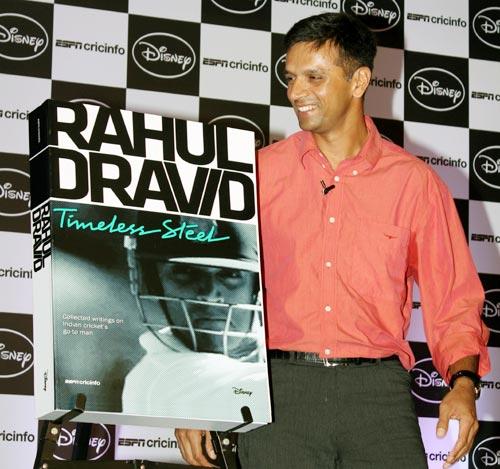
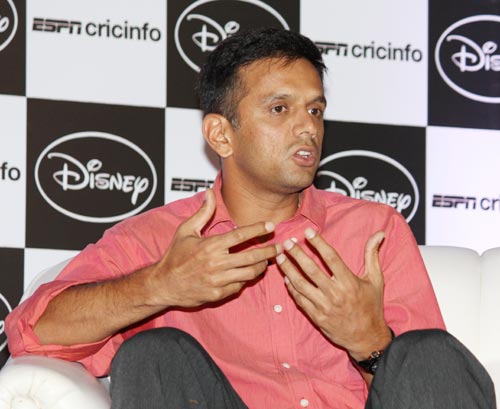

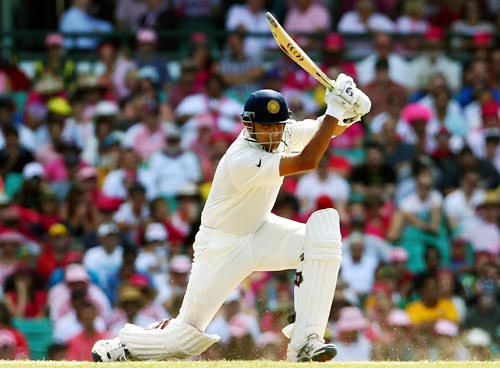
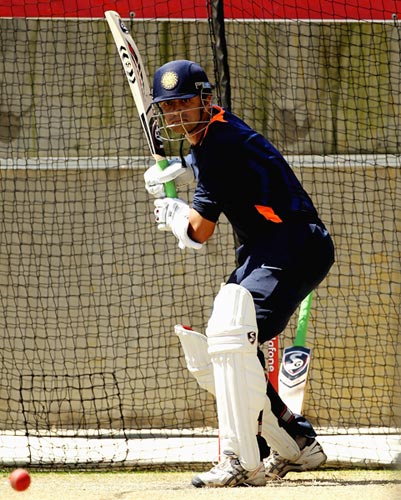
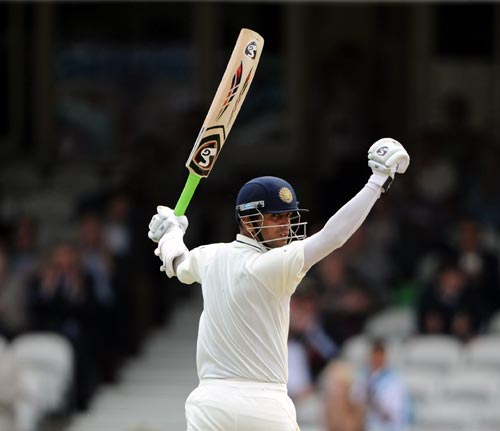
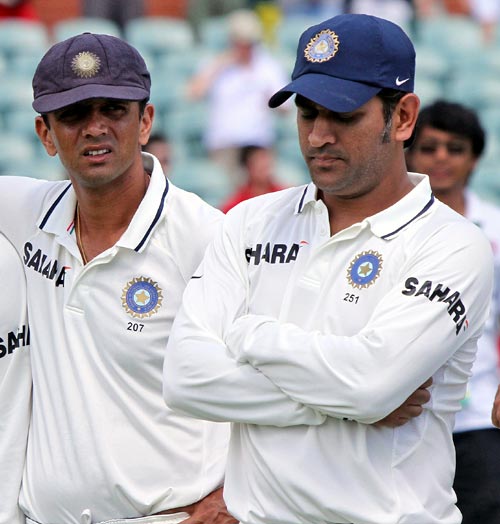
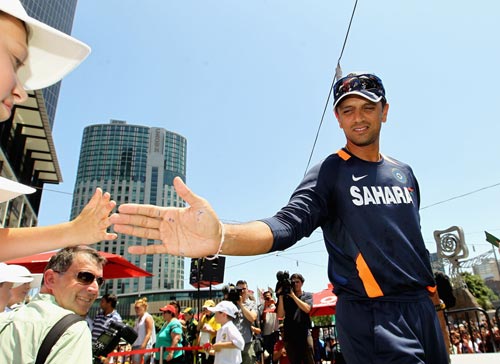
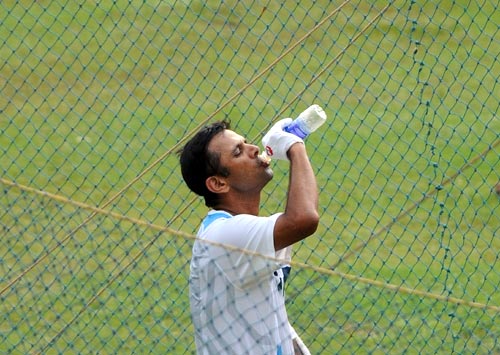
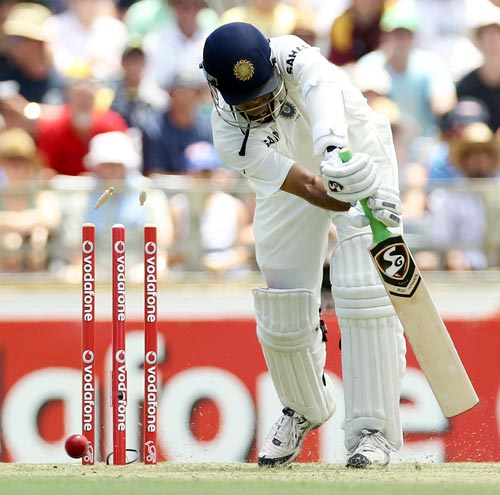
Comment
article